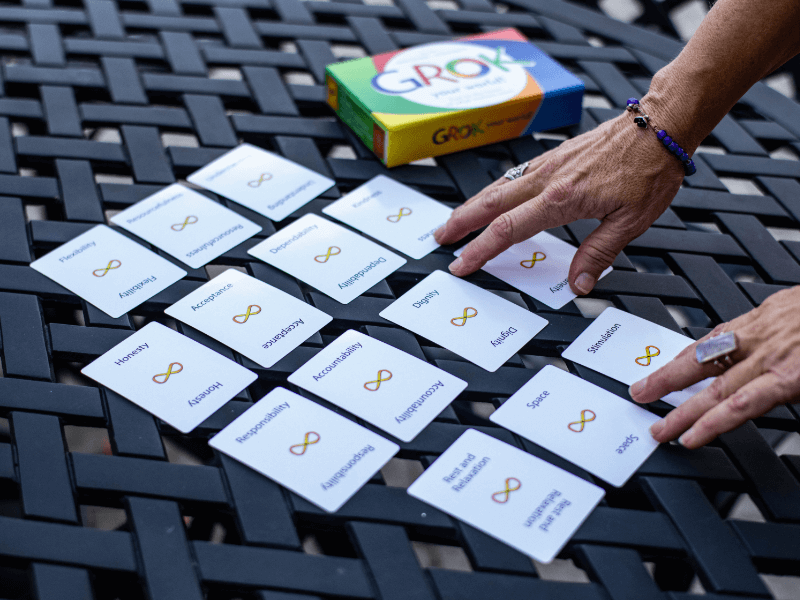
Nonviolent Communication (NVC), sometimes referred to as Compassionate Communication, is an emotionally intelligent, awareness-based communication approach developed in 1964 by psychologist Dr. Marshall Rosenberg. NVC is an effective and learnable process that has been applied to the resolution of conflicts around the globe, as well as to deepen understanding and connection in personal relationships, schools, hospitals, corporations, and governments.
Nonviolent Communication focuses on 3 practices:
- the practice of self-connection
- the practice of expressing honestly with compassion
- the practice of listening empathically
At the heart of NVC is the language of universal needs and the understanding and practice of empathetic listening and speaking. Those who practice NVC describe all words and actions as being motivated by an attempt to meet human needs. In attempting to meet needs, humans commonly use coercion by inducing fear, guilt, shame, praise, blame, duty, obligation, punishment, or reward. Learning to recognize when we as NVC practitioners engage in these behaviors is in itself a practice of self-awareness.
Formal NVC self-expressions include four elements:
- Observations (which are discreet observable actions or words free of interpretation, judgment, criticism or blame)
- Feelings (which are emotions, as opposed to thoughts expressed as feelings)
- Needs (as opposed to strategies)
- Requests (as opposed to demands)
With the practice of NVC, everyone’s needs can be understood and acknowledged as valuable. The assumption is that from this state of mutual understanding, new strategies will surface that are more likely to meet some, or possibly all, of the needs of those involved. A key principle of Nonviolent Communication that supports this is the capacity to express oneself without use of good/bad, right/wrong judgment, hence the emphasis on expressing feelings and needs, instead of criticisms or judgments. Through NVC, lives are healed and relationships restored as people integrate a needs-based and empathetic awareness.
If you would like more information about NVC or NVCNashville, any of our board members would be pleased to speak with you! We welcome all inquiries and interest. We also recommend learning about NVC by reading the founding textbook, Nonviolent Communication: A Language of Life by Marshall Rosenberg, and its companion workbook by Lucy Leu. Our local practice groups, workshops, and classes led by CNVC Certified Trainers are another excellent way to learn more, as well as numerous other NVC written and online resources .